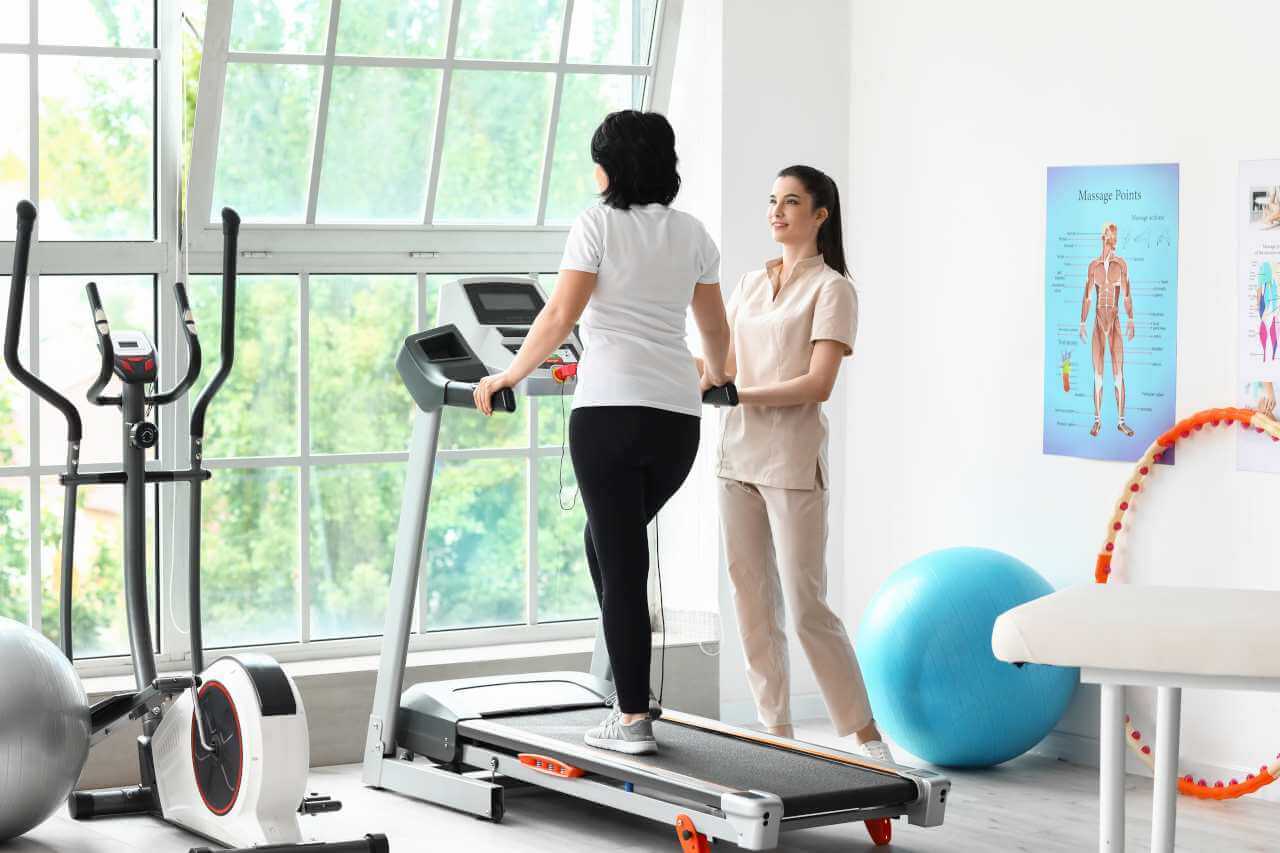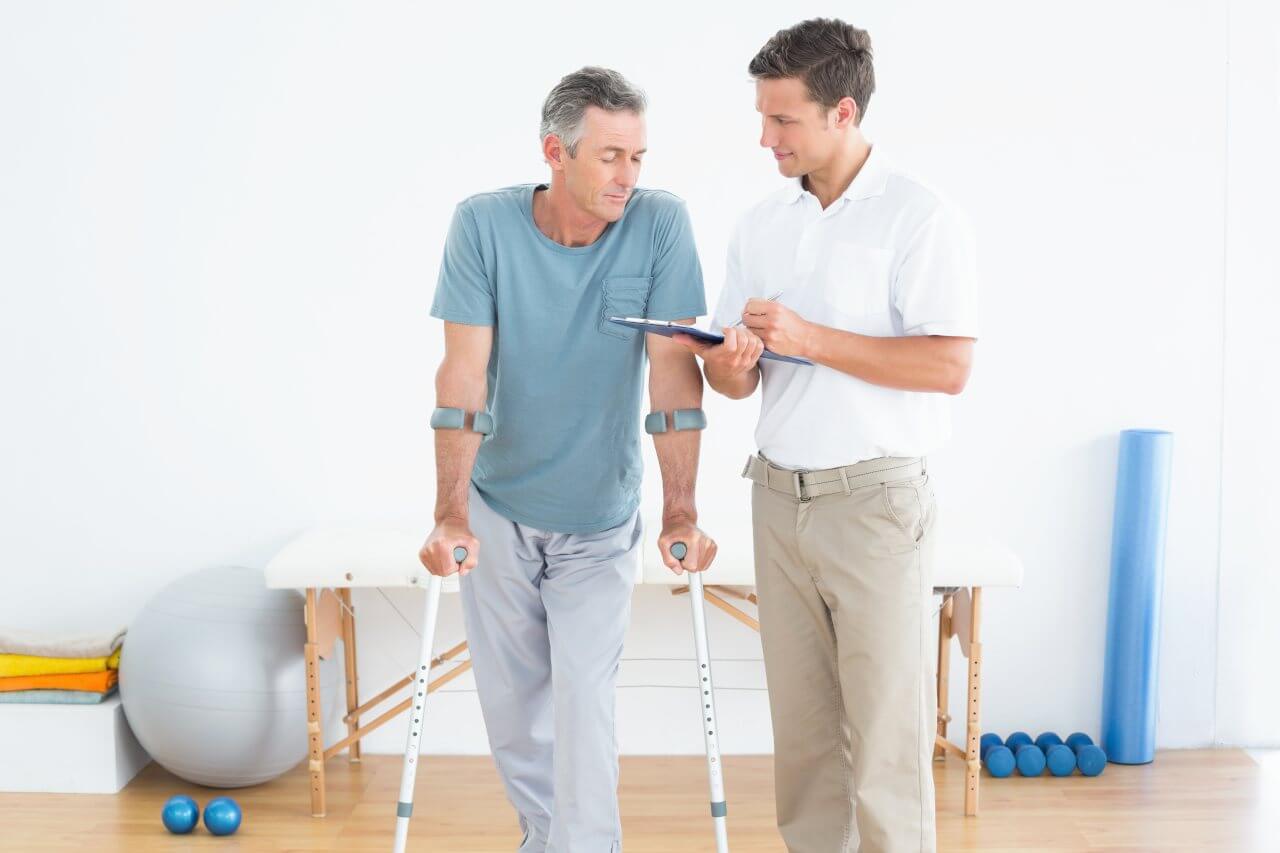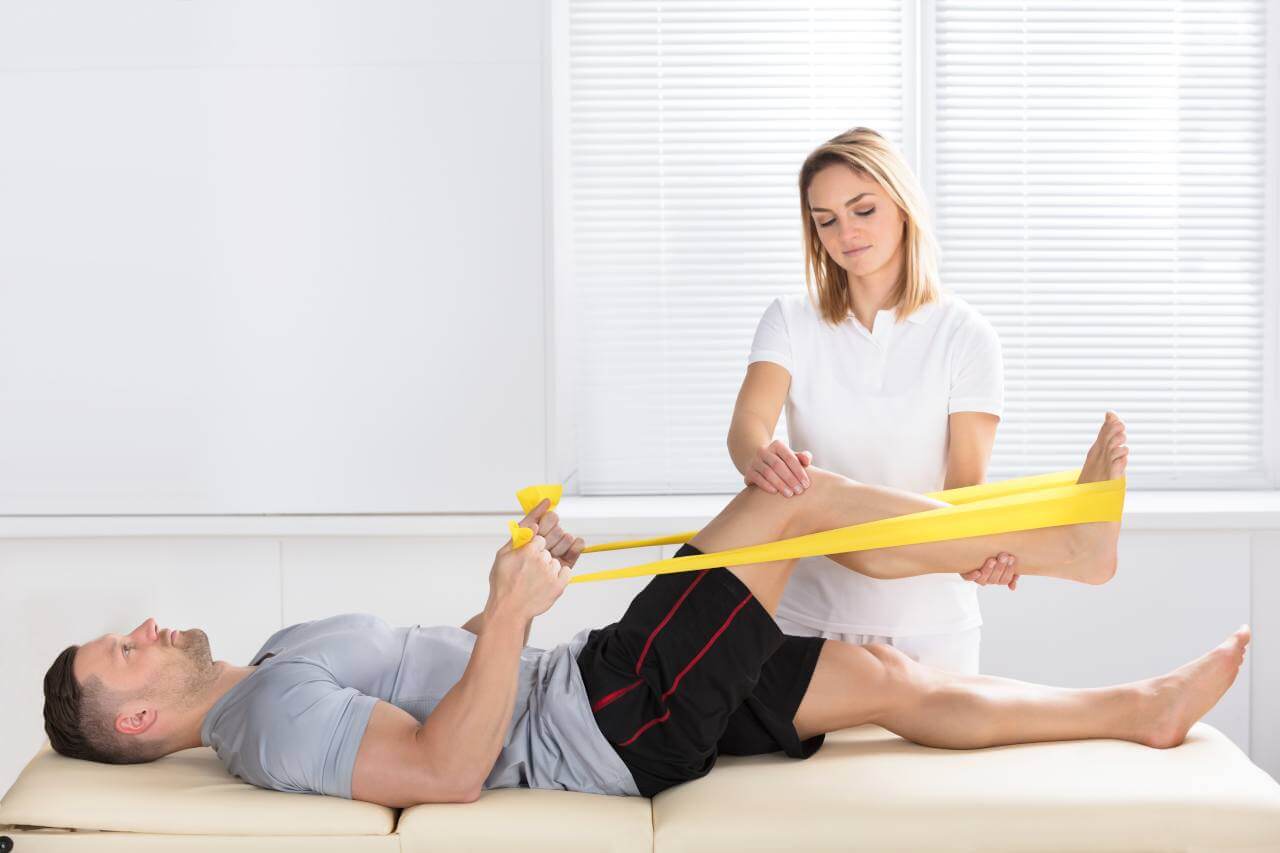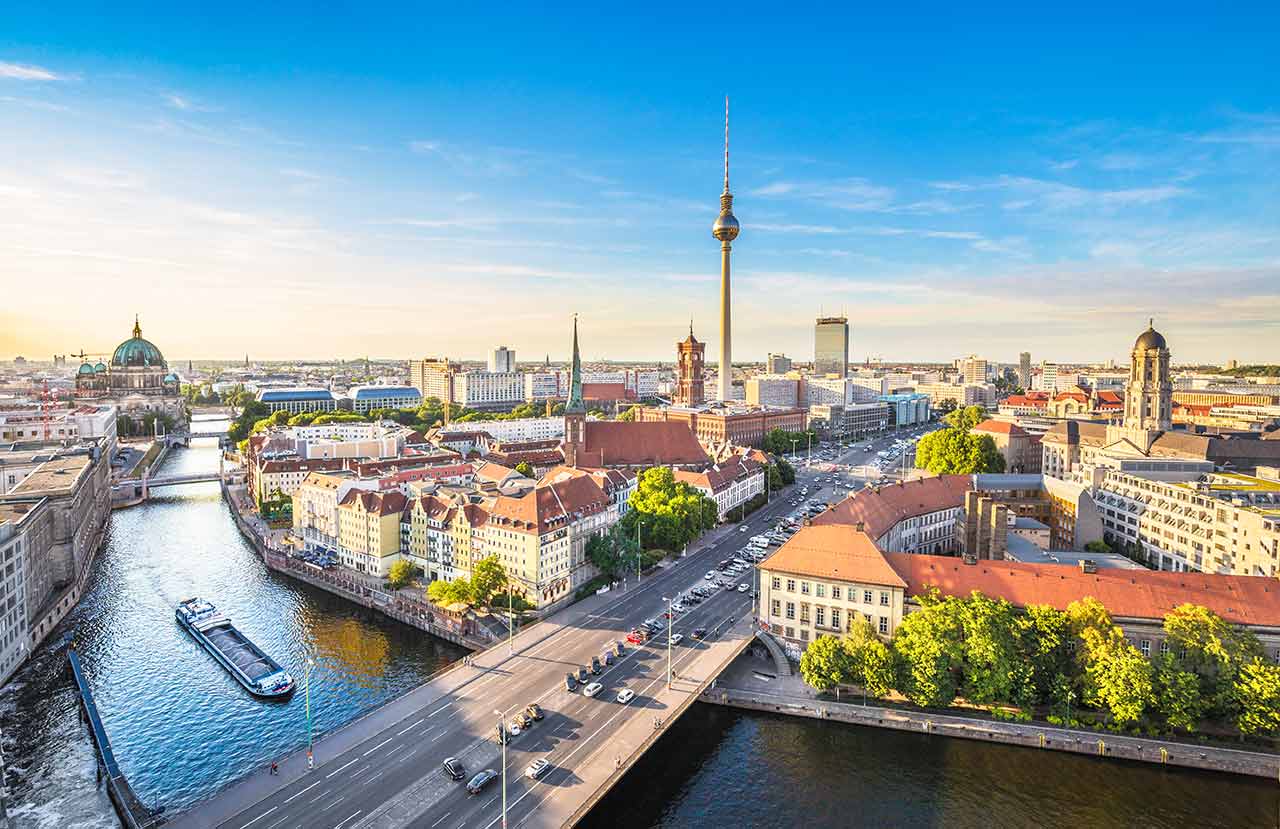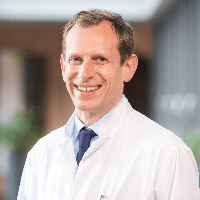
The program includes:
- Primary presentation in the clinic
- medical history, including family history
- complex neurological and orthopedic examinations
- CT / MRI / X-ray examination
- complex neurophysiological examinations
- consultation and curating by a neurourologist
- individual rehabilitation program, which includes:
- bladder training
- bowel training
- propriozeptive neuromuskuläre fazilitation (PNF)
- transcranial magnetic stimulation (TNS)
- orofacial stimulation of Castillo Morales
- functional propriotrening
- various methods of respiratory gymnastics
- Wii Fit training in the use of the balance
- neuropsychological therapy
- functional therapy of the upper extremities (ArmeoSpring)
- functional electrical stimulation / neurostimulation
- kinesitherapy (physiotherapy)
- biocontrol with feedback
- healing deep muscle massage
- neuromuscular electrostimulation
- acupuncture of spasticity and pain syndromes
- occupational therapy
- psycho-educational classes
- Individual physiotherapy
- microcurrent treatment
- fangotherapy / cryotherapy
- antispasmodic drug therapy (incl. Botox)
- mobilization of limb joints
- hydrotherapy / massage therapy / reflexology
- training on special trainers (Lokomat, exoskeleton)
- and etc.
- day-and-night care nurses
- stay in the hospital with full board
- symptomatic and drug therapy
day-and-night |
Service
You may also book:
 BookingHealth Price from:
BookingHealth Price from:
About the department
According to Focus magazine, the Department of Neurological Rehabilitation at the Rehabilitation Clinic Medical Park Humboldtmuehle Berlin ranks among the best medical facilities in the area of its specialization!
The department offers rehabilitation to patients with congenital and acquired diseases of the brain and spinal cord, peripheral nerves and muscles. The department's medical team specializes in phase B, C and D neurological rehabilitation. One of the primary focuses of the department's clinical practice is the rehabilitation of patients after stroke. The department has a specialized Stroke Rehabilitation Center, whose doctors provide intensive care, including mechanical ventilation, and classical rehabilitation measures on an inpatient basis. Neurological rehabilitation in the department begins with the comprehensive diagnostic examination of the patient, based on the results of which an optimal rehabilitation treatment program is developed. In the course of neurological rehabilitation, many people practically learn to walk, talk and control their bodies all over again, so the department's specialists make every effort to provide the patient with maximum independence in everyday life and a decent quality of life after suffering from pathology. The department is headed by Prof. Dr. med. Martin Ebinger.
The development of an effective rehabilitation program is possible only after comprehensive diagnostics, an assessment of the patient's neurological status and rehabilitation potential. For these purposes, modern equipment is required, which is fully available in the medical facility. The department's diagnostic rooms have advanced devices for computed tomography, magnetic resonance imaging, X-ray, endoscopic examination of the act of swallowing, bronchoscopy, electroencephalography, transcranial dopplerography, ultrasound scanning, and recording of evoked potentials. Whenever required, doctors conduct emergency diagnostics – most often in case of stroke. The doctor prescribes the necessary complex of diagnostic procedures after an individual consultation and study of the patient's medical history. An interdisciplinary team of experienced neurologists, physiotherapists, physical therapists, occupational therapists, speech therapists, psychologists, nutritionists and social workers work at the development of the rehabilitation regimen.
The department's specialists most often admit patients with Parkinson's disease, multiple sclerosis, post-polio syndrome, paraplegia, myasthenia gravis, and pain syndromes of neurological origin. As of today, more and more people, including young people, suffer from stroke, which is an acute impairment of the blood supply to the brain. In most cases, pathology leads to partial or total paralysis, defects or complete loss of speech, impaired vision, memory, and cognitive functions. To avoid or alleviate the severe consequences of stroke, doctors recommend starting rehabilitation measures as early as possible, even at the stage of the patient's stay in the intensive care unit. The department includes a specialized Stroke Rehabilitation Center, whose doctors have unique competence in this medical field. The center also has an intensive care unit, where weaning from mechanical ventilation, primary mobilization of the patient after stroke, and gradual restoration of swallowing function take place. During phase B rehabilitation, the patient begins to move in a wheelchair, restores his self-care skills, cognitive and communication skills. Phase C neurological rehabilitation after stroke includes further restoration of self-care skills, cognitive and communication functions, training of walking and fine motor skills of the hands. The final stage is phase D rehabilitation, the purpose of which is to integrate the patient as much as possible into everyday life, including the professional sector.
As one of the leading facilities for neurological rehabilitation in Germany, the department offers the widest range of highly effective rehabilitation measures. The department offers Vojta therapy, Bobath therapy, proprioceptive neuromuscular facilitation, manual therapy, Maitland technique, physical therapy (for example, heat therapy, cryotherapy, massage, electrotherapy, electrical stimulation, ultrasound therapy), therapeutic exercises (for example, medical training therapy, balance training, gait training, water aerobics in the therapeutic swimming pool), training to restore self-care skills (for example, personal hygiene, dressing, eating), occupational therapy (for example, fine motor training, mirror therapy, basal stimulation), individual and group speech therapy classes for restoring speech, psychotherapy, relaxation technique training, diet therapy. During the rehabilitation process, doctors and nursing staff support patients in every possible way, since many things can be very difficult for them: the first steps after a long immobilization, overcoming pain during exercise, the first words in impaired speech function, etc. The specialists understand that it is very important to support the patient on his way to recovery, to motivate him throughout the entire rehabilitation process, to set up the patient for a positive rehabilitation outcome.
The department specializes in the rehabilitation of patients with the following neurological disorders:
- Stroke
- Parkinson's disease
- Multiple sclerosis
- Post-polio syndrome
- Paraplegia
- Myasthenia gravis
- Pain syndromes of neurological origin
- Traumatic brain injuries
- Pathological conditions after neurosurgical interventions (for example, after brain tumor removal, spinal surgery)
- Neurodegenerative diseases and movement disorders
- Diseases and traumatic injuries of the peripheral nervous system
- Muscular diseases
- Other neurological disorders
The department's range of diagnostic and therapeutic services includes the following options:
- Diagnostic services
- Classical X-ray scanning
- Computed tomography
- Magnetic resonance imaging
- Endoscopic examinations of the act of swallowing
- Bronchoscopy
- Electroencephalography
- Recording of evoked potentials
- Transcranial dopplerography
- Ultrasound scanning
- Urodynamic tests
- Laboratory tests
- Rehabilitation measures
- Bobath therapy
- Proprioceptive neuromuscular facilitation
- Vojta therapy
- Hydrokinesitherapy
- Manual therapy: Maitland therapy, James Cyriax therapy
- Medical training therapy with therapeutic climbing
- Physiotherapy
- Classic massage
- Heat therapy
- Ultrasound therapy
- Cryotherapy
- Pneumatic compression therapy on the Lymphomat device
- Inhalation therapy
- Electrotherapy
- Electrical stimulation
- Reflexology
- Comprehensive antiedemic therapy
- Connective tissue massage
- Trigger point therapy
- Hydrojet massage
- Therapeutic exercises
- Medical training therapy
- Proprioceptive exercises
- Walking training
- Treadmill workouts
- Water aerobics in the therapeutic swimming pool
- Group sports
- Ergometer cardio training
- Training on the Galileo vibration platform
- Therapeutic climbing
- Tai chi
- Occupational therapy
- Training to restore self-care skills (personal hygiene, dressing, etc.)
- Fine motor training
- Therapeutic exercises for the spine
- Basal stimulation
- Heat therapy
- Walking training
- Mirror therapy (Perfetti method)
- Diet therapy
- Speech therapy (in groups and individually)
- Neuropsychological care and psychotherapy (in groups and individually), training in relaxation techniques, techniques for coping with stress, depression and anxiety
- Other medical services
Curriculum vitae
Since May 1, 2017, Prof. Dr. med. Martin Ebinger has been heading the Department of Neurological Rehabilitation at the Rehabilitation Clinic Medical Park Humboldtmuehle Berlin. Prior to this, the specialist worked at the Charite University Hospital Berlin, where he was a Board Member of the Stroke Research Center and Medical Director of the Stroke Emergency Mobile (STEMO).
Prof. Ebinger is also a Reviewer in various international journals and public funding programs, and is considered a recognized specialist in the field of stroke care.
Dr. Martin Ebinger has a doctorate in Medicine and Philosophy. After training in Wuerzburg and Munich, he began his professional career in the Department of Neurology at the Max Planck Institute of Psychiatry in Munich.
In 2007 Prof. Ebinger carried out research on stroke treatment as a Research Fellow at the Royal Melbourne Hospital in Australia, and since 2008 he has been researching neurological diseases at the Charite University Hospital Berlin.
Photo of the doctor: (c) Medical Park Humboldtmühle in Berlin
About hospital
According to the reputable Focus magazine, the Rehabilitation Clinic Medical Park Humboldtmuehle Berlin ranks among the top German medical facilities specializing in orthopedic and neurological rehabilitation!
This is a narrowly focused medical center, whose competence includes rehabilitation for patients after severe musculoskeletal injuries and diseases, including sports injuries, and pathologies of the nervous system. The pride of the clinic is the advanced technical base, which plays an important role in the success of rehabilitation. The restoration of the patients' health is in the safe hands of highly professional doctors who are recognized as the best specialists in medical circles in Germany and in many other European countries. In addition, the rehabilitation clinic is situated in a picturesque location on the banks of Lake Tegel, surrounded by green spaces. The pleasant environment prevailing in the clinic and the beautiful natural landscapes contribute to the peace of mind and well-being of patients.
The clinic has advanced diagnostic rooms, thanks to which doctors can comprehensively assess the patient's condition and determine his rehabilitation potential. In addition, diagnostic equipment allows doctors to control the patient's recovery process and, if necessary, adjust the rehabilitation program. To examine the musculoskeletal system, the clinic uses classical X-ray scanning, computed tomography, magnetic resonance imaging, C-arm fluoroscopic X-ray scanning, DXA bone mineral density assessment, joint and soft tissue ultrasound scanning, 4D spine and posture analysis, gait analysis and many other examinations. Diagnostic options for patients who have suffered neurological disorders include computed tomography, magnetic resonance imaging, X-ray scanning, endoscopic examinations for swallowing disorders, bronchoscopy, electroencephalography, recording of evoked potential, transcranial dopplerography and other tests.
Each rehabilitation program is developed on an individual basis, taking into account the specific needs and wishes of the patient. At the same time, the attending physician clearly defines the goals of the upcoming rehabilitation, the achievement of which will indicate the success of the therapy. In the course of rehabilitation, the specialists of the medical facility use various therapeutic methods, ranging from classical physiotherapy, physical therapy, therapeutic exercises to therapeutic climbing and a special program for restoring self-care skills (personal hygiene, dressing, etc.). Diet therapy and psychological support play a special role in rehabilitation as well. The medical facility includes a specialized Stroke Center, whose doctors have unique competence in the rehabilitation of patients who have had this disease. Stroke often causes severe pathological conditions, which can be alleviated or eliminated only with the help of well-planned rehabilitation tactics.
The medical team of the clinic makes every effort so that the patient can restore his self-care skills as much as possible and return to normal life. The specialists strive to surround patients with care, treat their life situation with understanding and do everything possible to achieve the optimal result. The rehabilitation clinic cares about its reputation, so patients can count on impeccable medical service.
Photo: (с) depositphotos
Accommodation in hospital
Patients rooms
The patients of the Rehabilitation Clinic Medical Park Humboldtmuehle Berlin live in comfortable rooms with a cozy modern design. The rooms are adapted to the needs of patients with disabilities. The standard patient room furnishings include a comfortable bed with a built-in emergency call system, a bedside table, a wardrobe, a table and chairs, a telephone and a TV. Most patient rooms have a safe for storing valuables. The rooms are made in light colors, which contributes to the peace of mind of patients. Each patient room has an ensuite bathroom with shower and toilet.
The clinic also has enhanced comfort rooms: 10 junior suites, 6 suites and apartments with an area of 150 square meters. Superior comfort rooms are distinguished by a more refined design, upholstered furniture and beautiful decor elements.
In addition, the clinic has a swimming pool, a sauna, a shop, a hairdresser, a cafe and a restaurant, as well as a terrace with a beautiful view of Lake Tegel. All these amenities, combined with beautiful natural landscapes, contribute to the maximum comfort of patients during treatment.
Meals and Menus
The patients of the clinic are offered tasty, healthy and balanced meals. Breakfast is served as a buffet with a wide selection of light dishes: muesli, eggs, fruits, yogurts, cottage cheese, juices, etc. For lunch and dinner, there is a choice from a variety of German and European dishes.
The menu includes dietary and vegetarian dishes, dishes low in cholesterol, purines or fats, lactose- and gluten-free dishes, and pork-free dishes.
If for some reason you do not eat all foods, you will be offered an individual menu. Please inform the medical staff about your dietary preferences prior to treatment.
Further details
Standard rooms include:
Accompanying person
Your accompanying person may stay with you in your patient room or at the hotel of your choice during the inpatient program.
Hotel
You may stay at the hotel of your choice during the outpatient program. Our managers will support you for selecting the best option.
